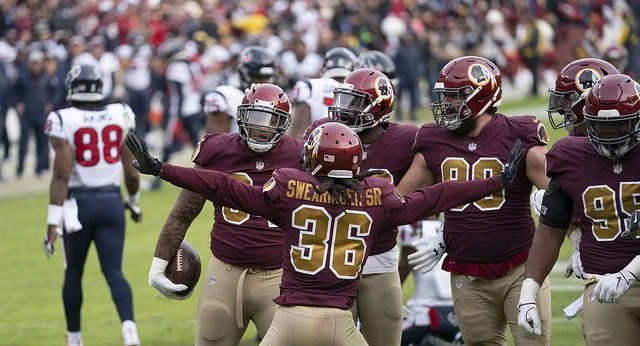Washington D.C. passes sports betting law

Washington D.C. has become the seventh jursidiction to legalise sports betting after the D.C. City Council approved the Sports Wagering Lottery Amendment Act yesterday (December 18).
The Act, originally filed by Councilmember Jack Evans in September, passed a council vote with 11 in favour, and just two against. It permits retail and digital sports betting in the capital, which has a population of almost 700,000 and teams in each of the major sports leagues.
The City Council passed emergency legislation which makes the law effective immediately, allowing the D.C. Lottery to begin drawing up regulations. The permanent bill is expected to be approved by Mayor Muriel Bowser before then being submitted for a 60-day Congressional review. Evans told reporters he believes betting could begin before the start of the Major League Baseball (MLB) season in April.
The bill will only allow mobile wagering via the D.C. Lottery's Intralot powered platform. However, a number of designated facilities, such as the city's major sports arenas, will be able to sign their own partners which will be able to offer their mobile services to customers within a two-block exclusivity zone, inside of which no competition is allowed.
The four stadiums that can apply for Class A licences and offer betting are the 82,000-capacity FedEx Field, the 41,000-capacity Nationals Park, and Capital One Arena and Audi Field which can both hold just over 20,000 fans.
Operators will be charged a 10% tax on gross wagering revenue, with Class A five-year licenses at the sports venues costing $250,000. Class B sports betting licences, which do not allow mobile exclusivity, can be obtained by other premises at a cost of $50,000. More limited two-year retail licenses cost $5,000 apiece. Between 40 and 60 other premises that currently offer lottery products – between 10% and 15% of the current total – are expected to apply for licences according to D.C. City Council estimates.
Supplier licences are available for an up-front fee of $10,000 followed by an annual charge of $2,000.
Sara Slane, the AGA’s senior vice president of public affairs, welcomed the passing of the legislation, in particular the reasonable tax rate and the exclusion of any integrity or exclusive data fees, which had been considered during the legislative process.
However, she admitted deep concerns about the D.C. Lottery being granted an effective monopoly over mobile wagering.
“Predictably, this will result in less investment and innovation, to the detriment of consumers and the ability of a nascent legal marketplace to compete with the accessibility and convenience offered by many established illegal wagering operations,” Slane said.
“AGA urges District policymakers to reevaluate the merits of this key aspect of their framework and allow greater competition in the future.”
Those concerns were shared by Ted Leonsis, the owner of the Washington Capitals of the National Hockey League (NHL) and the National Basketball Association’s (NBA) Washington Wizards. Leonsis said the D.C. Lottery monopoly is a “disservice to fans, who don’t get the benefit of competition in the marketplace.”
The fiscal impact statement created by the D.C. Office of the Chief Financial Officer projects gross sports wagering revenue of more than $7.6m for the second half of 2019, then $26m in 2020, $28m in 2021, and $30m in 2022.
Figures released by the district’s chief financial officer, Jeffrey DeWitt, estimated that a multiple-operator approach would yield $34.3m for state coffers between 2019 and 2022, in comparison with $92.2m through the single-operator approach via DC Lottery and partner Intralot, which has a contract that runs until March 2020.
Image: Keith Allison
